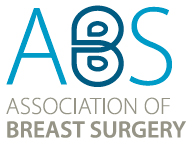Administering OPTIMA
Eligibility criteria
Please check the full eligibility criteria in the protocol to ensure potential participants meet these before consenting into the study.
Current documents can be found on the OPTIMA Essential Documents page.
Compatibility with other randomised controlled trials
Patients randomised into OPTIMA can also take part in:
- Radiotherapy trials
- Non-randomised trials
- Trials of oral SERDs (e.g. Lidera)
Please check with the trial office if you are in doubt. In general, anything that does not involve drug treatment is allowed.
Randomisation Process
After obtaining written informed consent from the participant to take part in the OPTIMA study, the following forms must be completed before contacting the WCTU randomisation team to randomise the participant.
- Randomisation Form
- Eligibility Form
These forms must be completed
Participants will be stratified according to country, intended chemotherapy regimen, number of involved nodes, histological grade, tumour size and menopausal status. This information must be available at randomisation.
Randomisation can be conducted by telephone or fax to WCTU. Non-UK sites will use the WCTU online randomisation application.
Participants will be randomised to standard treatment (control arm) or to test-directed treatment.
Randomisation will be by computer using a minimisation algorithm. The randomisation system will ensure that there is no bias between the two trial groups. Patients will be randomised strictly sequentially, and allocation between trial arms will be undertaken at a ratio of 1:1. The randomisation system will allocate each patient a unique trial number. The Trial Office will send a confirmation fax/email to the research site containing the randomisation details.
Following randomisation
The research site should send a partially anonymised copy of the participant’s relevant histopathology reports to the OPTIMA Trial Office. To assist linkage with tumour blocks, in addition to the participant’s trial number and initials, the report should show the date of birth, the hospital name and histopathology numbers. All other patient identifiable data (name, NHS and hospital numbers etc) should be redacted before the report is sent to the Trial Office. A copy of the redacted report should accompany the tumour block(s) sent to the Central Laboratory.
The Trial Office will check all pathology reports and any other necessary source documents, and in the event that patient identifiable information has not been fully removed, this will be redacted by the trial team.
Following randomisation, the research site will promptly send a tumour block to the Central Laboratory. The Trial Office will inform the Central Laboratory of the participant’s randomisation. The laboratory will inform the Trial Office of receipt of the tumour block.

